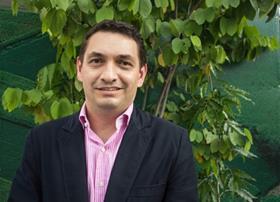
When representatives of the international avocado industry descend on the Plaza Mayor Convention Centre in Medellín on 23-27 September for the ninth edition of the World Avocado Congress, it will be a ringing endorsement of the country’s acceptance in the top rank of global suppliers.
In 2015, the year the congress was last held, the value of Colombian avocado exports was US$10.28m. Fast-forward to 2018 and exports were on course to reach US$75m, and even the most conservative estimate suggests they will break through the US$100m barrier in 2019.
Jorge Enrique Restrepo, executive director of industry association CorpoHass, says the event is a historic opportunity to showcase the Colombian avocado sector to the world.
“We are already well positioned in the global ranking of producers. Our geographical location is a huge advantage and at the same time poses many challenges, which visitors to the congress will want to learn about,” he tells Fruitnet.
By the end of last year there were already 30 confirmed speakers from the leading producing countries: Mexico, the US, Australia, Chile, South Africa, Spain, New Zealand, Israel and Colombia.
In addition to the main plenary sessions, the programme will include a number of additional activities including an exhibition area, tours of local production sites, a business matchmaking app and specialised workshops.
Among the highlights of 2018, he points to the consolidation of programmes to the US, which opened in 2017, as well as the recent opening of the Argentine market. Last year also saw the construction of much-needed packhouses in the heart of the main production zones, and the arrival of several new foreign investors.
“The world’s biggest avocado consuming markets are showing a growing interest in Colombia as our reputation as a reliable supplier continues to grow,” he says. “At the same time we’re creating new opportunities in the processing industry, such as juicing, which is adding further value to the sector.”
Until now, Europe has been Colombia’s main export market, but last summer’s price collapse, caused by oversupply from Peru, had sharpened the industry’s focus on achieving greater market diversification.
“As things stand, we foresee markets opening up in the following order: Japan, China, Chile, South Korea and Mexico,” says Restrepo, adding that Cuba and India are also within Colombia’s sights. “Asia –China in particular – is a major goal because of its huge growth potential. Although it represents a huge logistical challenge for Colombia due to its distance, it is nevertheless hugely important and want to play a part in its development.”
At the same time, Restrepo acknowledges that Colombia still has a long way to reach its full potential in the US market. “Complying with the conditions set out under the phytosanitary protocol has proved more difficult than we expected, as can be seen from the limited volumes we shipped in 2018,” he says. “Nevertheless, the fruit we did send was very well received and as it is vital that we protect our reputation, we will be proceeding slowly but surely in this market.”
The industry now plans to set up a commission of importers that would allow it to access the considerable promotional resources of the Hass Avocado Board. This would, says Restrepo, enable exporters to carry out direct consumer marketing campaigns and help to raise the profile of Colombian avocados.



